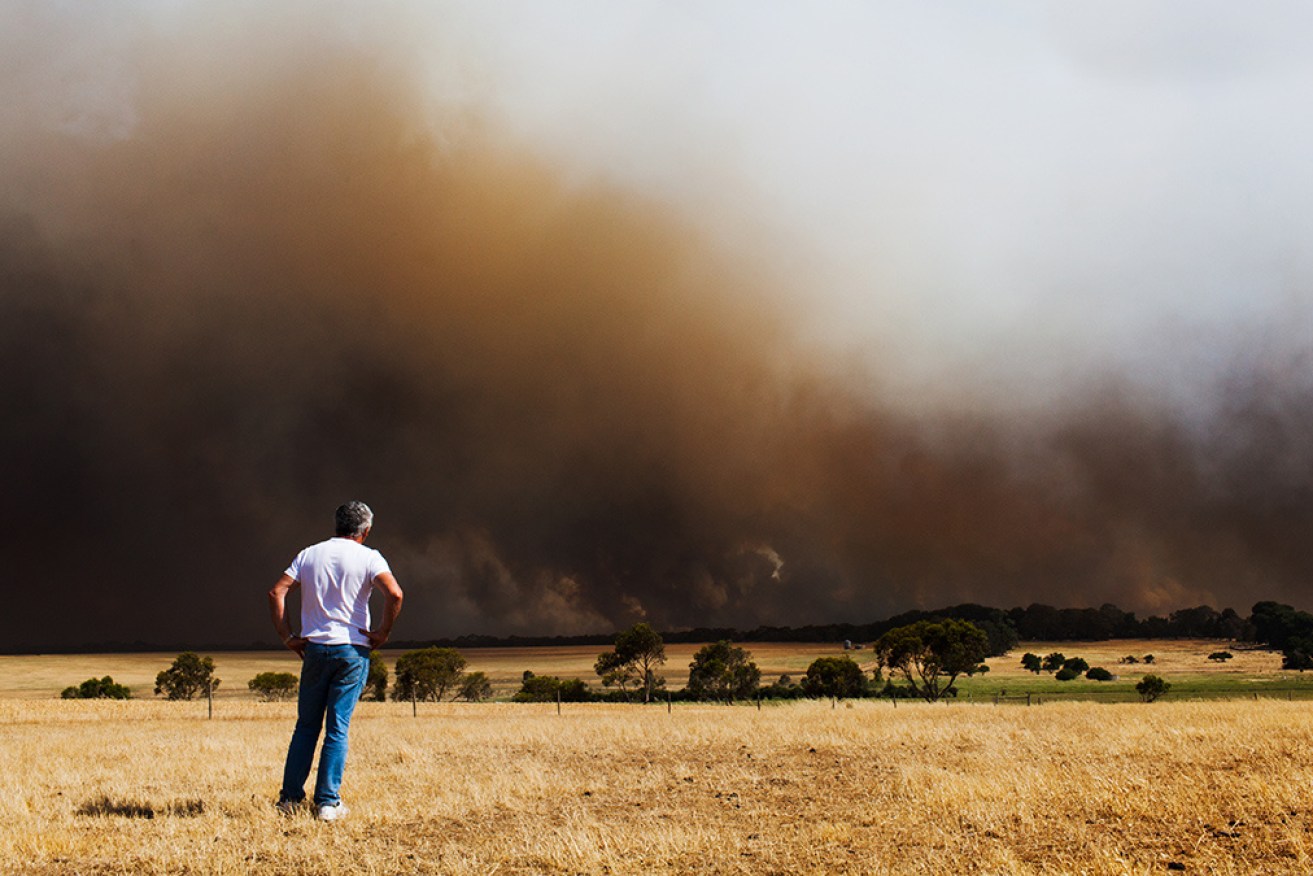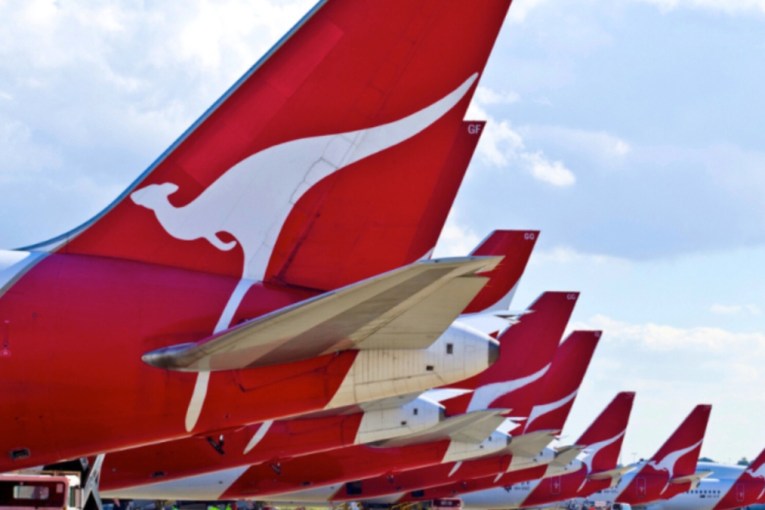Farmers in Queensland’s salad bowl region warn food prices will rise due to drought

Australians could be paying more for their groceries if farms continue to face dry conditions. Photo: Getty
Queensland farmers are warning consumers they will need to pay more for fresh fruit and vegetables, as well as meat, due to the ongoing drought.
The Lockyer Valley is known as Queensland’s salad bowl region, but a lack of water is forcing landholders to make tough decisions they have never been faced with before.
The managing director of Australia’s largest vertically-integrated beef business said the company had started carting water to one of its feedlots in the region due to the drought.
David Foote from Australian Country Choice (ACC) said Brisbane Valley Feedlot, less than 100 kilometres west of Brisbane, began carting water in at the start of October, which he expected would be a short-term job.
“Back in September there was an expectation that we would start to get normal rains, particularly in the Lockyer Valley,” he said.
Then came October and then came November and now we’re in December and we haven’t had the rains we expected.

Australian Country Choice is carting 700,000L of water a week to its feedlot. Photo: Supplied
“We’ve been there since 1989, but it’s the first year that our bores have effectively not met up with the demand of the feedlot – which is actually carrying a historically low number of cattle – but we still haven’t got enough water, naturally supplied, to meet our needs.
“[We are carting in] approximately 700,000 litres a week, which is just on 50 per cent of our requirements.
In October we were purchasing 300,000 litres a week but the extreme heat has more than doubled our water requirements.’’
Tailoring cattle on feed
Currently there have been 3800 head of cattle at the feedlot, but Mr Foote said if it did not rain soon the decision may need to be made to reduce numbers.
“I would think now with having to buy 50 per cent of our water, if it goes any more, we are likely to need to reduce our cattle on feed numbers to reduce our reliance on purchased water, because it’s becoming much less affordable to maintain that business,” he said.
We will have to tailor the number of cattle on feed to match the resources.
“Generally that means in feed or in labour, but for the first time in our company’s history will have to match the cattle on feed to our available water supply.”

ACC may have to cut the number of cattle in Brisbane. Photo: Australian Lot Feeders’ Association
While all of the company’s properties, which span close to 2.42 million hectares across Queensland, had been impacted by drought, Mr Foote said supply contracts had not yet been affected.
“ACC has two other feedlots which are full, so that’s protecting us in terms of our supply requirements,” he said.
“We will make up any shortfall from Brisbane Valley Feedlot from those as well.”
Consumers will have to pay more for food
However, Mr Foote warned that when it did rain, consumers would have to pay more for meat as the supply of cattle would likely fall.
“Historically, the Australian consumer has never had to pay the true cost of production, be it through floods, be it through droughts,” he said.
“Retailers have generally shielded the consumer from the real cost because it moves and because of its volatility.
“I think the period going forward is going to be a challenge.
If we all received the rains that we hope for and need, one could imagine there will be much more price pressure on product than there is today.
“The shortage will come when the rains come, because people will be able to withhold cattle from the market because they might be restocking or be able to grow them out themselves.
“So that’s the real pinch point coming in the market next: When the Australian consumers’ love for our product may be much more tested than it is today.”
Consumers should also be prepared to pay more for fresh vegetables according to a Lockyer Valley farmer, who this year has had to lease more land to grow the same amount of vegetables he would grow in a normal year.

Farmer Steve Klauck had to invest in water infrastructure on properties he is leasing. Photo: Lydia Burton, ABC Rural
Steve Klauck would normally grow cabbages, cauliflowers, lettuces and pumpkins on three properties near Helidon, but this year he has had to grow it all on six places.
“Because we’ve got contracts, and we’ve worked hard to build those relationships, we don’t want to give them up, so we’ve had to lease farms further from home, buy more machinery etc,” he said.
“Some of these lease blocks that we’ve taken on, we’ve had to spend money on them out of our pockets to improve them so that they suit the way we farm, so we’re spending more money to achieve the same result.
“The last farm we took on, we built a dam with pumps and all that, plus we’ve had to buy a truck and other machinery because our properties are spread around.
But the farms that we’ve got, they will grow good produce. It’s just that the day-to-day cost to run the farms is going to be a lot higher.’’
Cheaper to go to extreme lengths
Mr Klauck said despite it costing his family hundreds of thousands of dollars, it was cheaper than losing long-term supply contracts.

Losing supply contracts would cost more than putting in extra measures to ensure a crop. Photo: Lydia Burton, ABC Rural
“We do a lot of processing of cabbage and it takes a lot of years to build relationships with the supermarkets [to be able to do that] so you don’t want to give up all that hard work,” he said.
We might only be in a drought for a year so it would be silly to give [the contracts] up and then in a year try to get them back, because it has been a long road to get here.</p> <p>
“If you just grow for the market, you take the highs and lows. But a lot of what we do is at a fixed price.”
Mr Klauck said if the drought continued and vegetable production declined, prices would go up and he may therefore make back his money.
“I think if there’s a shortage of produce overall with the water situation in the valley, and across the rest of the country, there will be a potential there to make some money,” he said.
“If everyone cuts back a bit generally, the price goes up and that will hopefully cover some of these extra costs.
“We’d like to hope we get rewarded for our efforts, but it will just depend ultimately on what the weather does.”








